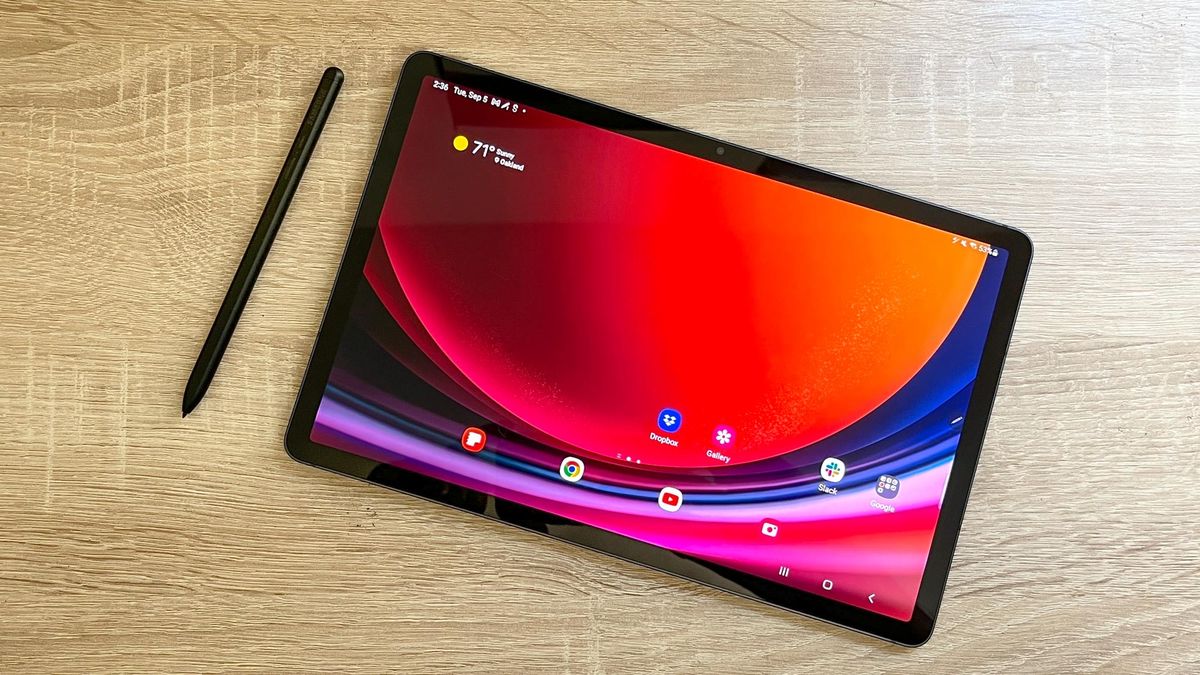How Samsung Tablets Compare to Other Leading Brands
Find out how Samsung tablets stack up against Apple, Microsoft, and Lenovo. Explore their strengths in display, performance, battery life, and more.

Tablets have become an essential gadget for work, entertainment, and education. Among the many brands in the market, Samsung has solidified its position as a major player. The Best Samsung Tablet models offer impressive performance, sleek design, and competitive features. But how does it really compare to other leading brands like Apple, Microsoft, and Lenovo? In this article, we’ll break down the key differences and help you decide if a Samsung tablet is the right choice for you.
Build Quality and Design
Samsung is known for its sleek and premium-looking tablets. Many of its models, especially those in the Galaxy Tab S series, feature high-quality aluminum frames and slim designs. While Apple’s iPads also boast a similar premium feel, some budget tablets from Lenovo and Amazon tend to use more plastic materials, making them less premium but more affordable. If design matters to you, Samsung competes closely with Apple in aesthetics and build quality.
Display Technology: AMOLED vs. LCD
One of the biggest advantages of Samsung tablets is their AMOLED display technology. Unlike many other brands that use LCD screens, Samsung’s AMOLED displays offer deeper blacks, more vibrant colors, and better contrast. This makes them ideal for watching movies, editing photos, and playing games. Apple, on the other hand, reserves OLED technology for its high-end iPads, while Microsoft and Lenovo primarily use LCD screens. If screen quality is a priority, Samsung is a strong contender.
Performance and Processing Power
When it comes to performance, Samsung tablets come in various configurations, from budget-friendly options with mid-range processors to high-end models powered by Snapdragon and Exynos chips. Apple’s iPads, particularly the iPad Pro models, are known for their industry-leading M-series chips, which outperform most competitors in raw power. Microsoft’s Surface tablets, running full Windows OS, also offer robust performance for professional tasks. While Samsung delivers solid performance, Apple and Microsoft still lead in terms of raw processing power.
Operating System: Android vs. iOS vs. Windows
Samsung tablets run on Android, which offers more customization and flexibility than Apple’s iPadOS. Android users can enjoy multitasking features, split-screen capabilities, and a more open app ecosystem. However, iPads have an edge in software optimization, offering a smoother experience with longer update support. Microsoft’s Surface tablets, running Windows, are best for those who need a tablet that can function like a full-fledged PC. If you prefer a balance between customization and ease of use, Samsung tablets are a great choice.
App Ecosystem and Software Support
The app ecosystem can make or break a tablet experience. Apple’s App Store offers more tablet-optimized apps, which is one reason why iPads are popular for professional work. Samsung tablets have access to the Google Play Store, which has plenty of apps, but not all are optimized for large screens. Microsoft’s Windows-based tablets, while great for productivity, lack a strong touch-friendly app selection. Samsung provides long-term software updates, but Apple still leads in this department.
Productivity and Multitasking
Samsung’s DeX mode is a game-changer for those who need a desktop-like experience on a tablet. When connected to a monitor or used with a keyboard, Samsung tablets can function almost like a laptop. Apple’s iPadOS offers powerful multitasking, but it still lacks the full desktop experience. Microsoft’s Surface tablets, however, run full Windows, making them the best option for professional work. If you need a tablet for both fun and work, Samsung's flexibility makes it a great competitor.
Battery Life and Charging Speed
Battery life is another crucial factor when comparing tablets. Samsung tablets generally offer excellent battery life, especially in their flagship models. Some models even support fast charging, allowing you to get back to work or entertainment quickly. Apple’s iPads are also known for strong battery life but usually take longer to charge. Microsoft’s Surface tablets, while powerful, tend to have shorter battery life due to running a full desktop OS. If battery life matters, Samsung holds its ground well.
Pricing and Value for Money
Samsung provides a wide range of tablets at different price points, from affordable budget options to high-end premium devices. Apple’s iPads tend to be more expensive, especially the Pro models. Microsoft’s Surface tablets are also pricey, given their full desktop capabilities. Lenovo and other brands offer budget-friendly choices, but they often lack the premium feel and performance of Samsung’s higher-end models. If you’re looking for a balance between price and performance, Samsung tablets offer great value.
Accessories and Compatibility
Samsung tablets support a variety of accessories, including the S Pen, which rivals Apple’s Pencil. Many models also support keyboard attachments, making them more versatile for productivity tasks. Apple’s ecosystem is known for its seamless integration with accessories, while Microsoft’s Surface lineup supports a full range of desktop peripherals. Samsung strikes a good balance between affordability and functionality, making it a strong competitor.
Final Thoughts
Samsung tablets bring a solid mix of design, performance, and flexibility, making them a great choice for many users. While Apple’s iPads excel in software optimization and raw power, and Microsoft’s Surface tablets are unbeatable for productivity, Samsung’s lineup offers a balance of affordability, features, and versatility. Whether you’re looking for a tablet for entertainment, work, or creativity, Samsung has an option that can fit your needs.
What's Your Reaction?


















